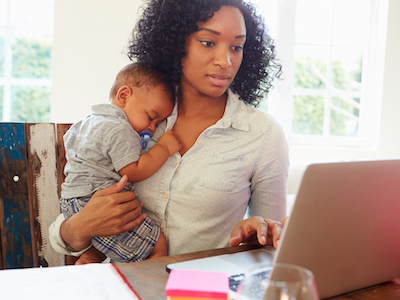The majority of us plan for most things in life; holidays, weddings and house moves, but many of us don’t plan in the same way for a pregnancy, not realising that in fact, a planned pregnancy is much more likely to be a healthier one.
In England, currently 45% of pregnancies and around one third of all births are unplanned or associated with feelings of ambivalence, emphasising the importance of ensuring that anyone of reproductive age is aware of the ways they can optimise their health and wellbeing before falling pregnant to reduce their risk of complications.
Traditionally, preconception care has focused on adults who have already decided to conceive however, some of the most important health behaviours that can impact pregnancy and childhood outcomes can take months to modify to achieve the maximum benefit. Women who are healthier at conception have a better of chance of becoming pregnant, having a safe and healthy pregnancy and giving birth to a healthy baby and unfortunately, poor preconception health can limit your choices during pregnancy and birth. Even amongst women who do plan their pregnancy, only a relatively small proportion currently change their behaviour before conception and in 2019-2020 less than 20% of women who gave birth took folic acid supplements before conceiving. With all of this in mind, it is important that preconception health information isn’t just aimed at those trying to conceive – it’s also important for anyone who might, in the future, go on to be a parent, even if they aren’t actively considering it currently.
What should I do?
Preconception health consists of many different aspects, but one of the most important areas is promoting healthy behaviours to improve pregnancy outcomes. Here I have discussed eight important health and lifestyle changes you can make that are beneficial not only if you are planning a pregnancy, but for your overall health and wellbeing throughout your reproductive years and life thereafter.
-
Ensure you are up to date with all vaccinations
Make sure you are up to date with your Measles, Mumps and Rubella vaccine. Rubella is a rare virus in the UK but can be harmful to a baby’s development if you catch the infection during your pregnancy, so making sure you’re protected beforehand is advised. Speak to your GP to find out whether you have had the vaccine if you are unsure.
-
Ensure your sexual health screen is up to date
Sexually Transmitted Infections (STI) can affect not only your fertility, but your pregnancy or baby also. If for any reason you or your sexual partner might have an STI, get tested sooner rather than later so you can be treated if needed.
-
Have regular cervical smear check-ups
Pregnancy hormones affect the results of your cervical screening test and may make it more difficult to assess if it is normal or not. Identifying and treating any abnormal cervical cell changes early can avoid serious complications later and are easier to treat outside of pregnancy.
-
Eat a healthy balanced diet and undertake regular moderate intensity physical exercise
Unfortunately, being overweight can affect your fertility, cause additional health problems during pregnancy, such as miscarriage or pregnancy diabetes and even affect the future health of your child. If you can bring your BMI (body mass index) down by even one or two points before you conceive this can make a big difference and reduce your chance of complications during pregnancy and birth.
Exercising, and being active regularly, can boost your fertility and will help you have a healthier pregnancy and birth, with studies showing that women who are active before and during pregnancy have a shorter, less painful labour.
-
Give up smoking
Stopping smoking is the single most important thing you can do to improve your long-term health and it one of the most important things you can do to improve your future baby’s health, growth and development. Smoking causes fertility problems in both men and women and stopping smoking can reverse any damage. Smoking during pregnancy increases the chances of premature birth, low birthweight, miscarriage and stillbirth. It is never too late to reduce or stop smoking and your GP can support you, or alternatively you can self-refer to the NHS smoking cessation services.
-
Reducing alcohol consumption
Drinking alcohol can affect both male and female fertility and when you drink whilst pregnant, alcohol passes through your blood to your baby via the placenta and can cause developmental problems. Doctors are still unsure how much alcohol is safe to consume so the general advice is if you are considering pregnancy or trying to conceive, avoid alcohol.
-
Use effective contraception if not planning a pregnancy
If you are aged <40 years old, around 1 in 3 couples will become pregnant within the first month of trying to conceive and around 80% of couples within the first year. If you are sexually active and not planning a pregnancy, make sure you are using effective contraception to reduce the chance of unplanned pregnancy.
-
Take Folic Acid supplement if considering pregnancy
Folic Acid supplements can help prevent developmental problems in your baby (neural tube defects) and you should ideally take Folic Acid daily for two months before you conceive to have the maximum protection. The majority of women need 400mcg daily, however some women need a higher dose, for example if you have epilepsy, so speak to your GP to get a prescription if needed.
If you do decide you would like to conceive now or think you might in the future, consider making some of these lifestyle changes as soon as possible to have maximum benefit. Any changes, however small, will be advantageous for you and your baby and reduce the chance of complications in both the short and long-term.
If you would like more information on trying to conceive, improving your fertility or ways to prepare for pregnancy to optimise your health, wellbeing and reduce your chance of complications, The Maternity Collective offer a detailed webinar available online delivered by Obstetrician and Gynaecologist Dr Ellie Rayner. More information at: www.thematernitycollective.co.uk
WeAreTheCity covers the latest female centric news stories from around the world, focusing on women in business, careers and current affairs. You can find all the latest gender news here.
Don’t forget, you can also follow us via our social media channels for the latest up-to-date gender news. Click to follow us on Twitter, Facebook, Instagram, and YouTube.









